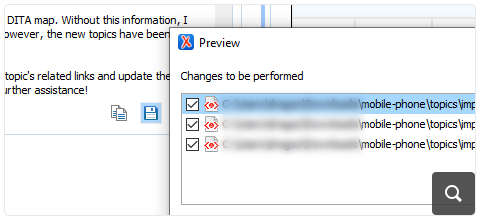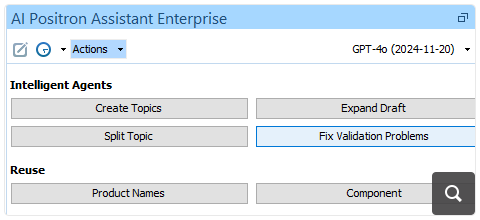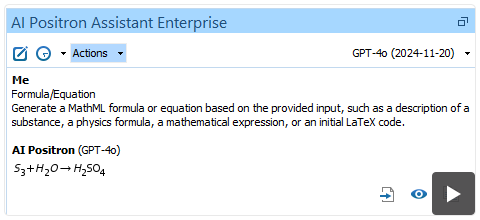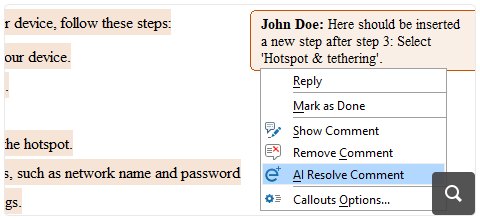2026
27.1Version 27.1 - March 24, 2025
2025
27.0Version 27.0 - November 27, 2024
- 26.1
Version 26.1 - March 25, 2024
2024
26.0Version 26.0 - October 11, 2023
- 25.1
Version 25.1 - March 16, 2023
2023
25.0Version 25.0 - October 13, 2022
- 24.1
Version 24.1 - March 7, 2022
2022
24.0Version 24.1 - March 7, 2022
Version 24.0 - October 18, 2021- 23.1
Version 23.1 - March 4, 2021
2021
23.0Version 23.1 - March 4, 2021
Version 23.0 - November 19, 2020- 22.1
Version 22.1 - May 19, 2020
- 22.0
Version 22.1 - May 19, 2020
Version 22.0 - February 12, 2020 2020
21.1Version 21.1 - May 23, 2019
- 21.0
Version 21.1 - May 23, 2019
Version 21.0 - February 22, 2019 2019
20.1Version 20.1 - June 15, 2018
- 20.0
Version 20.1 - June 15, 2018
Version 20.0 - March 16, 2018 2018
- 19.0
Version 19.1 - September 29, 2017
Version 19.0 - April 5, 2017 2017
- 18.0
Version 18.1 - October 18, 2016
Version 18.0 - April 21, 2016 2016
- 17.0
Version 17.1 - October 20, 2015
Version 17.0 - May 5, 2015 2015
- 16.0
Version 16.1 - October 7, 2014
Version 16.0 - May 20, 2014 2014
- 15.0
Version 15.2 - January 22, 2014
Version 15.1 - October 7, 2013
Version 15.0 - June 7, 2013 2013
- 14.0
Version 14.2 - February 13, 2013
Version 14.1 - October 19, 2012
Version 14.0 - June 27, 2012 2012
- 13.0
Version 13.2 - January 12, 2012
Version 13.1 - October 26, 2011
Version 13.0 - August 29, 2011 2011
12.0Version 12.2 - May 19, 2011
Version 12.1 - January 12, 2011
Version 12.0 - September 14, 20102010
- 11.0
Version 11.2 - March 16, 2010
Version 11.1 - December 17, 2009
Version 11.0 - October 9, 2009 2009
10.0Version 10.3 - June 29, 2009
Version 10.2 - April 15, 2009
Version 10.1 - February 25, 2009
Version 10.0 - October 23, 20082008
- 9.0
Version 9.3 - July 2, 2008
Version 9.2 - May 9, 2008
Version 9.1 - December 18, 2007
Version 9.0 - November 2, 2007 2007
8.0Version 8.2 - May 7, 2007
Version 8.1 - January 25, 2007
Version 8.0 - November 20, 2006- 7.0
Version 7.2 - June 6, 2006
Version 7.1 - March 2, 2006
Version 7.0 - January 13, 2006 2006
- 6.0
Version 6.2 - September 19, 2005
Version 6.1 - July 19, 2005
Version 6.0 - May 22, 2005 2005
5.0Version 5.1 - January 18, 2005
Version 5.0 - October 15, 2004- 4.0
Version 4.2 - July 15, 2004
Version 4.1 - June 10, 2004
Version 4.0 - April 30, 2004 - 3.0
Version 3.1 - February 6, 2004
Version 3.0 - January 14, 2004 2004
- 2.0
Version 2.0.4 - September 19, 2003
Version 2.0.3 - August 14, 2003
Version 2.0.2 - June 9, 2003
Version 2.0.1 - May 15, 2003
Version 2.0 - April 2, 2003 2003
- 1.0
Version 1.2.4 - December 17, 2002
Version 1.2.3 - November 27, 2002
Version 1.2.2 - October 22, 2002
Version 1.2.1 - September 27, 2002
Version 1.2 - June 27, 2002
Version 1.1.9 - June 15, 2002
Version 1.1.8 - June 5, 2002
Version 1.1.7 - May 27, 2002
Version 1.1.6 - May 24, 2002
Version 1.1.5 - May 20, 2002
Version 1.1 - May 15, 2002
Version 1.0 - April 15, 2002
What's New in Oxygen XML Editor 27.1
Related version: 27.0
Oxygen XML Editor version 27.1 is an incremental release of the industry-leading bundle of tools for content authors, developers, collaborators, and publishers.
In version 27.1, the AI Positron Assistant has been enhanced to include new AI-driven actions for validation fixes, MathML generation, and automatic code annotations.
When editing JSON documents in Author mode with an associated schema, the content completion feature automatically inserts required content, saving time and ensuring consistent structures.
XSLT and XProc have also been updated to provide extra flexibility. Custom parsers can be configured for XSLT transformations, while the XProc Calabash engine offers support to run AI-enabled XSLT stylesheets. Users also benefit from more informative error messages to assist with troubleshooting, XProc version 3.1 schema support, and easy configuration of XProc versions when creating new documents.
Enhancements to the Git Client add-on ensure a smoother user experience. Highlighted among the various improvements are the new Cherry-pick and Merge actions in the Git History view that make it easier to incorporate changes from selected commits.
For DITA publishing, the built-in publishing engine now integrates DITA-OT 4.3.0 to deliver more robust and efficient output.
This release also offers new APIs, refreshed components, security enhancements, and numerous bug fixes to refine the overall user experience.
There are changes in:
DITA Publishing
DITA-OT 4.3
Control Logging
chemistry.log.file transformation parameter. This is helpful if you
want to hide the INFO messages or write the logs into a separate file.Specify Viewers in Zendesk Transformations
AI Positron Assistant
Preview All AI-Proposed Changes to Files
Notification for Unchanged Content
When an AI action processes content but does not result in any changes, you are now informed, eliminating the need for unnecessary previews or visual inspection. This improvement saves time and ensures a smoother workflow.
Fix Validation Problems
AI-based MathML Generation
The new Formula/Equation action (located in the Content Generation category) leverages AI to generate MathML formulas based on your descriptions. This feature simplifies the creation of complex mathematical representations and enhances technical documentation workflows.
AI-based Code Annotations
Resolve Comments from Contextual Menu
New AI Callback Functions to Enable Dynamic Workflows
invoke_ai_action- This callback function invokes an AI action that enables the delegation of processing to other AI actions, thus you can use a divide-et-impera approach to simplify and optimize the AI action processing.retrieve_all_ai_actions- Instead of specifying a predefined set of AI actions that can be invoked, you can use this callback function that returns all the defined actions. This allows the AI to discover all the available AI actions and invoke them dynamically as needed.validate_document_content- When processing or generating content, an AI action can now use this callback function that validates a document, ensuring that the generated content is valid. In case of errors, it offers the opportunity to automatically correct the detected problems.
Invoke Positron Actions from XPath
A new XPath function (ai:invoke-action) has been introduced,
enabling you to seamlessly invoke an AI Positron action from any XPath context (such as
XSLT, XQuery, Schematron, etc.) by providing the action ID, contextual text, and the
content to be processed.
Multi-agent Architecture for Create Topics
invoke_ai_action()
function. These improvements ensure better adherence to system instructions and more
consistent execution. Export and Import Chat Sessions
Disable/Enable All AI Features for a Specific Project
Updated Default Model
gpt-4o-2024-11-20,
the latest gpt-4o snapshot from OpenAI.JSON
Improved Content Completion in Author Mode
XSLT/XQuery
Specify a Custom Parser in XSLT Transformations
XProc
Run AI-Enabled XSLT Stylesheets from XProc
Improved XProc Error Messaging
XProc Version 3.1 Schemas
Specify XProc Version in New Document Wizard
Quick Fixes
More Ways to Access Quick Fix Proposals
Add-ons
Git Client Improvements
- The new Cherry-pick action (available in the Git History view) applies the changes from the selected commit to the current branch.
- The Merge action is now available in the Git History view. You can use this action to merge an entire branch, or to integrate all changes from a selected commit and any of its ancestors that are not already in the current branch.
- The Git History side-view can now be linked to the active editor using the Link with Editor option. Selecting an editor for a file within the same repository will automatically display that file's history.
- It is now possible to sign commits using SSH keys.
- For Git resources, the contextual menu in the DITA Maps Manager now includes a Git submenu with two actions. The Show history action displays the history of the selected resource within the DITA Maps Manager. The Show blame action reveals who made the last modification on each line of a file and in which commit.
- Actions to create a repository in the project folder were added in the contextual menu of the Project side-view (look for Create repository here) and the Git main menu (see Create repository in project).
- The JGit component was updated to version 7.1.0.
- Other minor improvements and various bug fixes were implemented.
Miscellaneous
Speed Improvement for Format and Indent Files
Component Updates
Eclipse 4.35
EPUBCheck 5.2.1
JSON-Java 20250107
OpenJDK 17.0.14
TEI Schemas 4.9.0
TEI Stylesheets 7.58.0
Bootstrap 5.3.3
Deprecated/Removed Components
Validation and Transformation Engines
- msxsl (MSXML3.0, MSXML4.0 transformers)
- nxslt (.NET 1.0 transformer)
- nxslt2 (.NET 2.0 transformer)
- dotnetValidator (MSXML.NET validator)
- msValidator (MSXML4.0 validator)
API Additions
Custom Help for Plugin Preferences Page
OptionPagePluginExtension.getHelpPageURL() API method
was added, allowing a plugin-contributed preferences page to provide its own help page
URL.Create a Link Label
OxygenUIComponentsFactory.createLinkLabel(String,
ActionListener) API can be used to create a link label (a clickable label that
looks and acts like a link).Convert Visual Offset to Line/Column Information
AuthorDocumentProvider.getLineColumnMapping API method
allows an offset in the Author visual editor to be converted to line/column information in
the serialized XML document.



